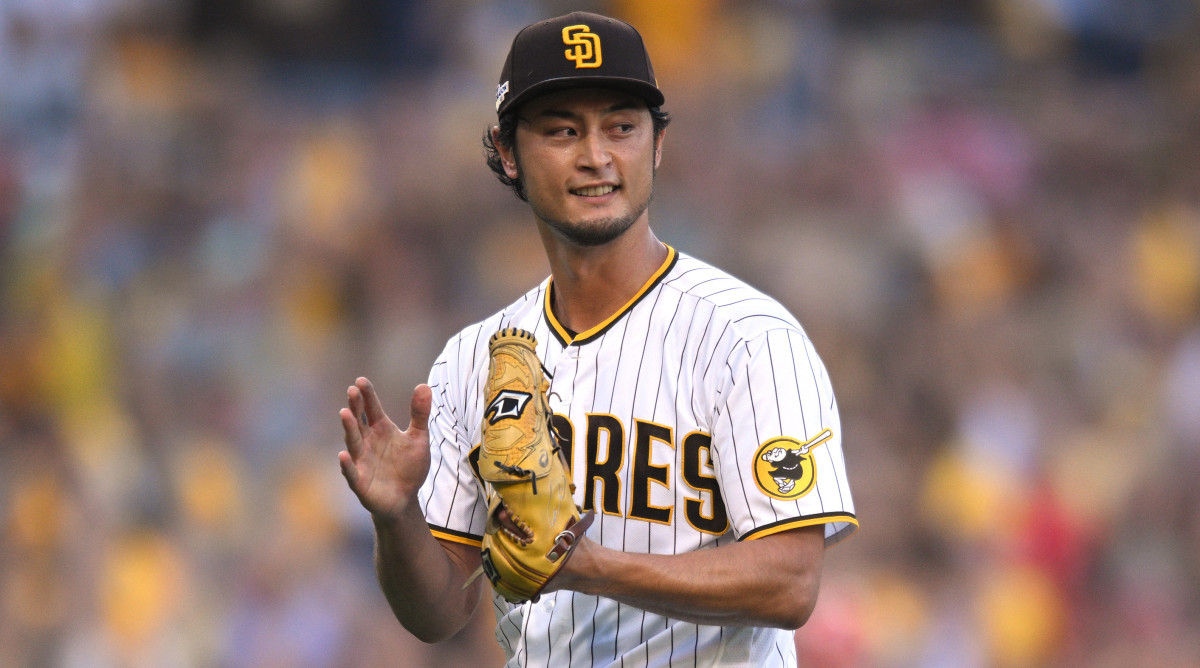Padres Bet Big on Yu Darvish’s Unique Tools to Age Gracefully

Yu Darvish has decided not to test free agency next winter. The pitcher has reportedly agreed to a six-year, $108-million extension with the Padres.
It’s a remarkable commitment for a player who turns 37 in August. (Darvish will be 42 at the conclusion of the deal.) But it’s an appropriately big statement for the Padres, underscoring just how serious they are about competing in the NL West for the next handful of years.
This secures the core of this rotation for the foreseeable future. Alongside Darvish, there’s also Joe Musgrove, who signed a five-year extension last summer. That makes for a great foundation, though San Diego could certainly benefit from adding some more depth. Despite the length of this deal, it’s primarily about the next few seasons, as the Padres look to build on last year’s trip to the NLCS. Ensuring that Darvish sticks around looks like a key part of that.

San Diego’s roster already boasts a slew of long-term commitments. Darvish and Musgrove are joined in that department by Xander Bogaerts and Fernando Tatis Jr.—and, of course, the big question here is Manny Machado, who has the ability to opt out of his deal after this season. For many teams, the current slate of long-term commitments would indicate fewer splashy signings in the future. Here? Owner Peter Seidler seems happy to spare no expense. (And general manager A.J. Preller is happy to help.) It’s remarkably difficult to go toe-to-toe with the Dodgers and their perpetual motion machine of a player development system. But the Padres are doing their best, and that’s meant a lot of big contracts, many of them for quite a long time. In other words, even with this big outlay for Darvish, don’t be surprised if they soon have a new deal to announce with Machado, too. And let’s not forget that over the summer they traded for Juan Soto, who becomes a free agent after the 2024 season. Just as we should expect him to test the open market when the time comes, we should also expect San Diego to go all-in to re-sign him.
Darvish is among the most fascinating pitchers in the game. He throws 11 distinct pitches. Statcast officially recognizes six: four-seamer, cutter, slider, sinker, splitter and curve. But there are hard and soft variations of the cutter, and a slow curve and knuckle curve to go with the regular curve, and a pitch in between a two-seamer and splitter that he calls “The Supreme.” (If there’s anyone whose PitchCom tracks would be fascinating to hear…) And it’s not just that Darvish has such a varied repertoire. It’s how he uses it. He’s constantly tinkering and adjusting. When he first came to MLB, his primary pitch was his four-seamer. But now, it’s his cutter, and in between, it was his slider. He’s never relied much on his velocity. Instead, he has spin, deceit and simple variety on his side. It’s hard to ask for a better pitching profile for a long-term deal.
Of course, a complex arsenal isn’t a guarantee of aging gracefully, or a protection against injury. But it sure can help. And the Padres are likely encouraged by how Darvish has aged so far: His past few seasons have been some of his best in a long time. Last year, Darvish threw more innings than he had in any season since 2013, with his best mark ever in WHIP. Even while some areas of his game took a step back—his strikeout rate hit a career-low—he showed his capacity to adjust. As his strikeouts dipped, he cut down on his walks, ultimately posting one of his best full seasons in some time. He was the oldest player to receive a vote for NL Cy Young—by more than five years!—and he certainly deserved it.
There have been just six pitchers with both an ERA under 3.50 and more than 425 innings pitched since 2020. That tiny group includes Darvish, and his company is quite good: Gerrit Cole, Zack Wheeler, Sandy Alcantara, Corbin Burnes and, of course, the modern standard for pitching at an advanced age, Adam Wainwright. The Padres won’t be counting on Darvish to pitch like currently does at age 42. To that end, the contract is reportedly front-loaded, preserving some payroll flexibility on the back end. But there’s good reason to be confident he can be productive into his late 30s. And if that requires making a big adjustment or tweaking his arsenal or even trying something completely new? Well, there’s almost no one better to count on.
